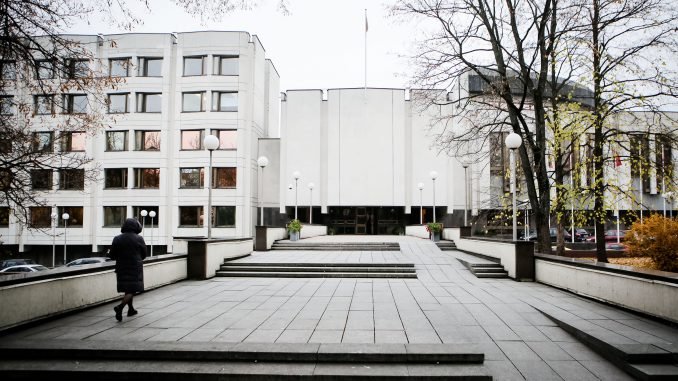
The Peasant and Greens Union electoral programme pledged to undertake specific tasks – change taxes, remove tax breaks, equalise taxation on different forms of business and implement a state monopoly on alcohol sales. The future government programme project, however, only pledges to consider these changes.
One example is where the Peasant Greens pledged to merge a part of Sodra payments with the income tax and apply this new tax to all income. The government programme project registered on Monday states:
“Considering that both the employer and employee taxes are a mandatory and inseparable part of labour costs and wages <…>, we will seek to make the tax system simpler, more transparent and clearer:
We will analyse the validity of merging taxes paid by both employer and employee, making the taxation of labour clearer, more transparent, easier to administrate and discouraging illegal bookkeeping. Other alternatives to reach these plans will be considered.”
The proposal that the new “merged tax” would be applied to all individual income, not just wages, is no longer in the programme.
The majority also spoke a great deal on consistently increasing tax-free income size depending on inflation and other economic circumstances, ensuring that citizens would experience a rise in income. Furthermore there were numerous pledges to abolish income tax breaks.
The government programme uses far more careful vocabulary in this regard: “We will evaluate the opportunities to index tax-free sizes for citizen’s taxes; we will review the income tax breaks in regard to social justice and effectiveness. Exemptions to expenses which reduce income will be applied only in cases justified both economically and socially, for example in regard to payments to pension funds or payments for studies.”
Limitations on new (i.e. non-existent) value added tax exemptions and reviews of the validity of current ones are identified as implementable means of increasing taxation transparency. By the way, there is no talk of exemptions for heating expenses in the programme, so it is likely that this will no longer exist from next year.
To reduce opportunities to evade tax payment and to simplify tax administration, there are plans to “seek” to equalise taxes paid by different forms of business.
Regarding the controversial removal of the income tax break for life insurance, the government programme also takes a step back – supposedly the cabinet will only discuss the possibility.
Perhaps the most clarity in the programme is maintained regarding raising excises for alcohol and tobacco produce, but Lithuania already has a commitment to the European Union to do this.
Furthermore, a clear commitment to implementing a state alcoholic beverage sales monopoly also vanishes: “Given the need for further limitation, we will evaluate the possibility of implementing a state monopoly alcohol sales system.”
Similar notions continue in promises regarding gambling and lottery taxation – the programme only has a point stating the need to evaluate the “regulatory effectiveness and venues for improvement” for this tax.
There have been a number of discussions regarding the pension system. The government programme is rather careful about this as well: “we will review the effectiveness of the current second and third stage pension system and opportunities for improvement.”
It would appear that the majority have left the idea of a state bank behind them. Instead there are proposals of reviewing opportunities to “establish a National Incentive Financing Institution led state or mixed capital Region Development Fund which would increase investment directed toward regions and infrastructure, reducing the economic segregation of regions.”
The majority government programme is no longer as strict in its narrative of limiting retail sale company concentration, while pledges on establishing state pharmacies turned into a statement that “we will encourage the establishment of alternative channels of medicine sales.”
Truth be told, the programme retained the pledge to raise average retirement pensions by 40 euro by mid-2017 and pay all outstanding pension compensations.
There are no further specific data or numbers regarding future finances and economy in the government programme.
No later than 15 days from the government programme being presented, it has to be reviewed by Seimas.
When the Prime Minister and other ministers conclude answering the questions of members of Seimas, a vote is to be held on the government programme.
If the programme does not pass or is returned to the cabinet for improving, the new edition of the government programme has to be presented to Seimas within 10 days and then its review procedure restarts.
The new cabinet receives its credentials when a majority of members of Seimas present at the review vote in favour of the programme and the members of cabinet swear an oath in Seimas.
If the Seimas rejects the government programme twice in a row, the cabinet has to resign.

Be the first to comment